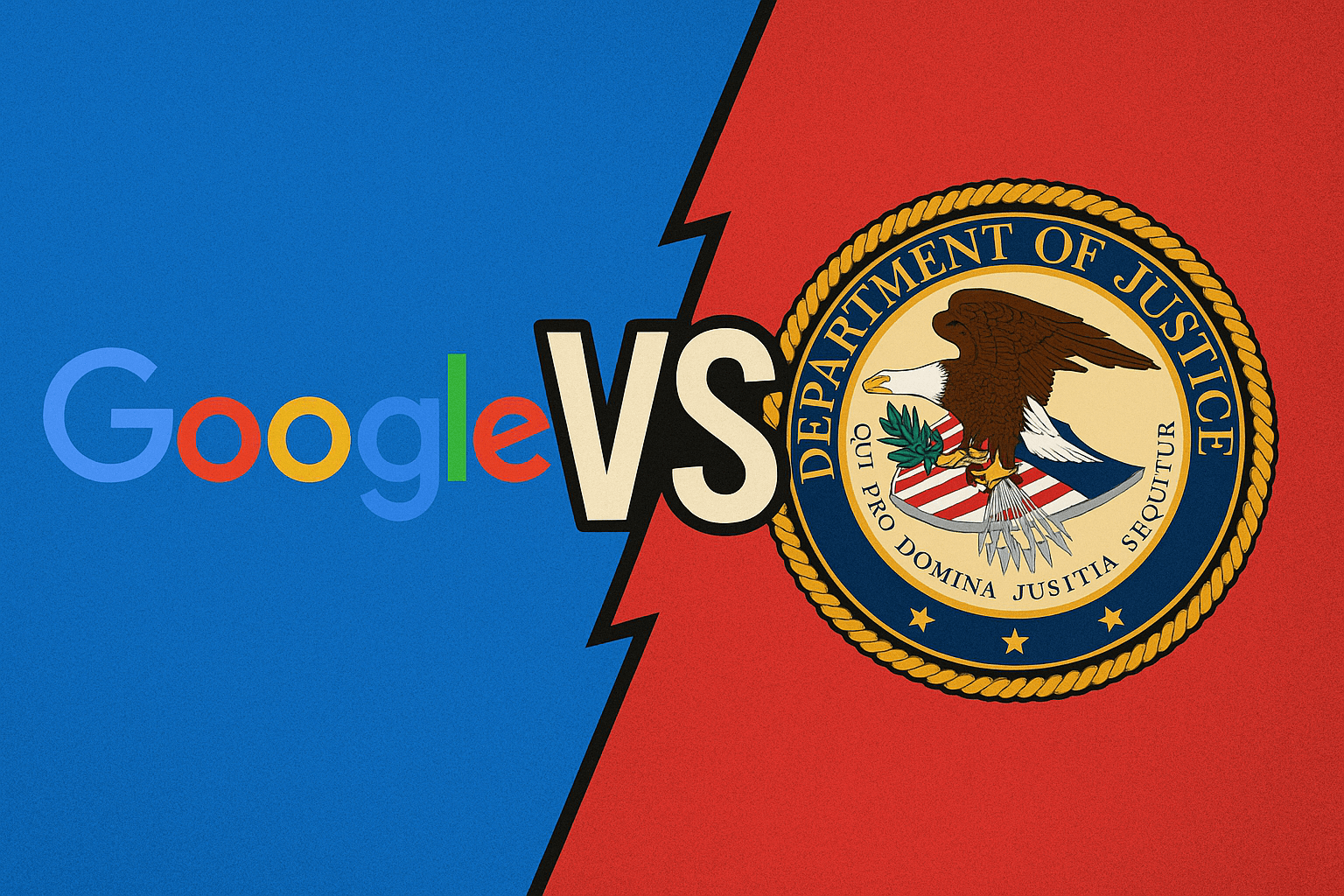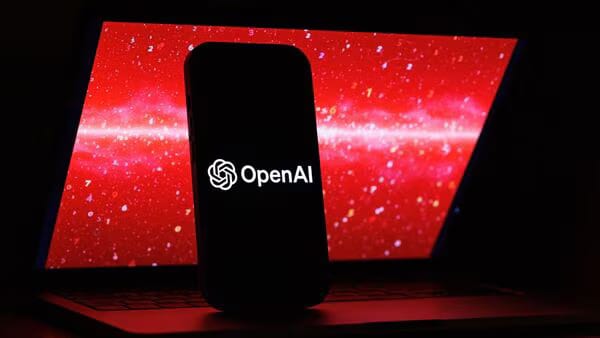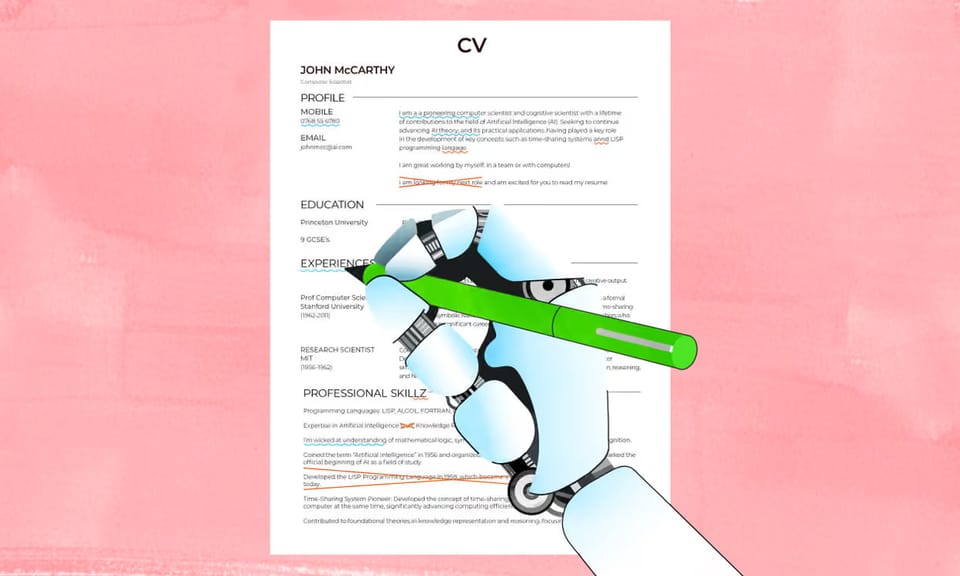Google vs. DOJ


AI’s doing the most: passing medical exams, starring in movies, and ruining your wardrobe (thanks, Walmart).
Meanwhile, tariffs are tripping up tech giants, and your mirror now gives unsolicited skincare advice.
It’s a great week to question everything, especially your drink choices.
Business & Finance
Tech Giants Get Trumped

Briefing: The U.S. slapped a massive 145% tariff on Chinese AI hardware, throwing cold water on big tech’s AI dreams. Microsoft and Amazon are now pausing billion-dollar data center plans. Apparently, building the future just got pricier.
Details: These tariffs made essential AI equipment painfully expensive, pushing Microsoft to ditch huge data center projects and Amazon to delay new leases. Wall Street didn't love the drama either, Nvidia shares plunged 26%. Talk about expensive politics.
Why it Matters: This political game isn't just hurting tech giants; it’s slowing the U.S. economy's hottest growth area. If tariffs stick around, expect the AI innovation train to lose steam fast. Turns out "Made in America" means made expensive. (Reuters)
Tech
Big, Dirty Secret

Briefing: Turns out AI isn't just smart; it’s a power-hungry monster. By 2030, AI could pump out as much CO₂ as Italy does in five years, according to the IMF (International Monetary Fund). So much for saving the planet with tech, huh?
Details: The IMF report says AI might soon guzzle as much electricity as the entire country of India. Experts warn the hidden environmental cost could overshadow AI’s economic benefits. Apparently, the digital revolution loves coal-fired power plants.
Why it Matters: We can’t let our shiny new tech wreck the planet. Balancing AI innovation with sustainability isn't optional, it's critical. Otherwise, our future robot overlords won't have much left to rule. (Axios Generate)
Entertainment
The Oscars' Newest Star

Briefing: The Oscars just announced that AI-made films can now snag nominations. Yep, your next favorite actor might be a robot; sorry, Leo! Hollywood is officially in its AI era.
Details: After recent AI-boosted performances stirred debate (looking at you, Adrien Brody’s digital accent in The Brutalist), the Academy says AI won't hurt or help award chances. They still prefer a human touch, but robots aren't off-limits anymore.
Why it Matters: Hollywood opening doors to AI marks a huge shift; expect more digital stars, stories, and drama. It’s cool, but also a bit spooky: is the next Spielberg a computer? Buckle up, movie lovers; films are about to get interesting. (The Times)
Beauty
Your Mirror Just Got Judgy

Briefing: Samsung teamed up with Amorepacific to launch a smart mirror that uses AI to analyze your skin. It tells you what's wrong with your face, and kindly suggests products to fix it. Perfect if your self-esteem was feeling too high lately.
Details: This AI mirror quickly checks for wrinkles, redness, and other skin dramas in just 30 seconds. Then it offers skincare advice and lets you buy products directly from the mirror itself. Shopping therapy just got literal.
Why it Matters: This is next-level personalized beauty, but also raises questions about data privacy. Sure, having your mirror criticize your face daily is convenient, but do we really want AI giving skincare guilt trips? Welcome to the future, folks; your mirror knows too much. (Aesthetics Today)
Fashion
Trendy or Tragic?

Briefing: Walmart just dropped its new AI, "Trend-to-Product," speeding up how quickly trendy clothes hit shelves. Fast fashion just got even faster, brace yourselves.
Details: This AI tool rapidly spots trends and designs clothes to match, cutting waste and keeping Walmart ahead in the style game. Great news for your closet, maybe less so for your wallet.
Why it Matters: AI is reshaping fashion at lightning speed, meaning you'll see trends faster than influencers can post selfies. But it also means traditional designers might need to update their resumes. (Axios)
Health
Doctors, Meet Your New Study Buddy

Briefing: An AI called SCAI just nailed the U.S. medical licensing exam, better than most real doctors. Apparently, robots don't need med school debt or coffee breaks.
Details: Built by the University at Buffalo, SCAI got an impressive 95.2%, beating even GPT-4 Omni. It uses real medical data to help doctors make quick decisions. Think of it as a medical intern who’s always awake, always right, and never complains.
Why it Matters: SCAI could help doctors avoid mistakes and burnout, but it still won't replace the comfort of an actual human saying, "Relax, this won’t hurt a bit." (University at Buffalo)
Food & Beverage
Weird New Drink Trends

Briefing: AI just predicted the hottest new drink flavors for 2025, and they're weird. Expect tahini-infused beer, white pepper spirits, and even olive cocktails. Because apparently regular drinks aren't confusing enough.
Details: Using billions of data points, AI identified tastes like hibiscus, Valencia orange, and olives as upcoming hits. Companies are now racing to make these quirky drinks happen; thanks, technology.
Why it Matters: AI is changing what we drink by guessing what we'll crave next. Soon, robots might be choosing your Friday night drink, hope you like salad-flavored martinis! (Food & Drink Technology)
Sports
AI Fumbles NFL Draft Predictions

Briefing: USA TODAY tested if AI could beat human experts in predicting the 2025 NFL Draft picks. The AI analyzed tons of data to guess team selections but made some laughable mistakes, like picking a punter way too early. Turns out robots aren't ready to coach just yet.
Details: While the AI nailed some surprise picks, its bizarre choices left analysts chuckling (and relieved). Experts, relying on experience and instinct, still proved more accurate overall. Apparently, knowing football requires more than crunching numbers.
Why it Matters: This funny experiment reminds us that AI, although impressive, isn't taking sports analysts' jobs anytime soon. Humans still have the upper hand with intuition and common sense. (USA Today)
Gaming
Cops Go Undercover as Gamers

Briefing: U.S. police are now using AI-powered gamer personas to secretly monitor chats on platforms like Discord. Yep, your next gaming buddy might just be Officer Bot in disguise.
Details: The AI tech, called "Overwatch," creates fake identities to spy on potential criminals but hasn't caught anyone yet, despite costing taxpayers $360,000. Privacy advocates (and common sense) aren't thrilled.
Why it Matters: If cops playing Fortnite as robots sounds wild, that's because it is. It raises big questions about online privacy, surveillance, and what happens when your Call of Duty squad includes an undercover cop-bot. (WIRED)
Travel & Transportation
From Nasdaq to Nowhere

Briefing: AI Transportation Acquisition Corp (AITR), once promising to revolutionize travel with AI, just got kicked off Nasdaq. Turns out paying fees and filing annual reports were too much hassle. Now they're hoping to trade quietly on the OTC Market, if anyone still cares.
Details: AITR ignored basic Nasdaq rules like submitting their 2021 financial report and paying listing fees. To save cash, they're skipping the appeal process. Basically, it's corporate-speak for waving the white flag.
Why it Matters: AITR’s crash-and-burn is a wake-up call: even AI-driven dreams need basic business skills. Investors beware, flashy ideas don’t make up for financial laziness. (GlobeNewswire)
Legal
Google vs. DOJ
Briefing: The DOJ is suing Google, saying its AI-powered search is unfairly crushing competitors. The government's boldest solution? Force Google to dump Chrome, talk about a breakup nobody saw coming.
Details: The issue revolves around Google's Gemini AI, which DOJ claims creates an unfair cycle of dominance. Google argues it's just good tech; but hey, monopolies always say it's just "good business."
Why It Matters: This case will shape the future rules around AI and fair play online. If the DOJ wins, we might finally get less creepy targeted ads.




